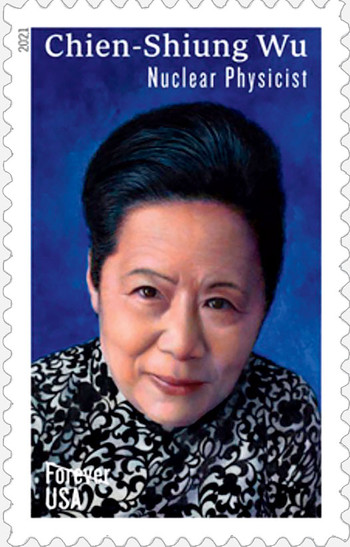Chien-Shiung Wu ’82HON, the first tenured female physics professor at Columbia and one of the most influential nuclear physicists of her generation, was recently honored by the US Postal Service with a commemorative stamp. Wu, who conducted research at Columbia from 1944 until her retirement in 1980, is best known for proving that elementary particles in the process of radioactive decay violate the “law of conservation parity,” which holds that a particle transforming from one type into another should change in symmetrical ways. Her discovery, which led to a Nobel Prize for the theorists who had first dreamed up this possibility — Columbia’s Tsung-Dao Lee ’90HON and Princeton’s Chen Ning Yang — revolutionized the field of atomic science. “Only a handful of physicists have made contributions that have radically changed our perspective on reality, and she is one of them,” says Columbia physicist Brian Greene.
Wu, who died in 1997, and whose snub by the Nobel Committee has been attributed by many to sexism, is the first Chinese-American physicist to appear on a US stamp. The stamp, which features a portrait of Wu by the Hong Kong–born, Brooklyn-based illustrator Kam Mak, was issued on February 11, the International Day of Women and Girls in Science.



